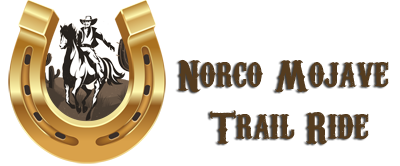- Don’t forget your horse tack!!! We don’t carry extras so we will not be able to help.
- Specialty feed. If your horse requires specialty feed, please allow space in your rig for that. (We provide hay, sweet feed and salt.)
- Saddle bags are always great on the trail, if your horse can carry them, they are heavily recommended.
- Horses will be tied to your trailer. Please plan accordingly. Accommodations can be made for tent campers.
- If you are tent camping, please make sure that your bedding is rated for the proper weather conditions, it can get cold.
- SHOEING YOUR HORSE IS A NECESSITY!!! If your horse has never been shod, please contact the Trail
Team ahead of time. - Weather is an unpredictable element on our ride. We can not control this, so we must tough it out and ride rain or
shine. Please plan accordingly. - YOUR HORSE NEEDS TO BE ABLE TO GO FOR 20 MILES A DAY. WE DON’T GO MORE THAN THAT BUT WE MAY GO LESS.
Typical Horse Problems
The most important thing to remember is – if you have any concerns about the condition of your horse during the ride, contact the Trail Boss. It is better to ask unnecessary questions than to have problems with your horse. We have been doing this for years and we have a lot of experience with long rides across the desert
We are here to ensure that you and your horse have a fun ride!
EXTREME FATIGUE
Cause – Horses are not conditioned for up – and down hill riding.
The desert is not all level. We go through several mountain ranges and horses should be good walkers. Please do not bring a horse that has been standing in a corral for two months prior to the ride. Get your horse and yourself in condition before the ride. It will add much to your enjoyment. Nobody warns to be up all night walking a sick horse or hurting in your whole body!
STRESS
Cause: This can be more of a problem than fatigue. It seems most of our horses are not used to being ridden five days in row, being tied to a picket line, or being with large groups.
Get your horse out as many days in succession as you can before the ride. Also, try to go on some rides with large groups instead of only two or three horses. Some horses come unglued at the sight of a bunch of other critters!
SORE BACK
Cause: Ill-fitting saddles and poor riders.
Horses, like people, have different shapes, so be sure the saddle fits your horse as well as it fits you. Each night, check your horse’s back. If you feel he’s sore, ask the Trail Boss to check. He may have some suggestions that will help.
HORSE BLANKET
We can’t emphasize enough how important it is to have a blanket for your horse at the end of the day.
Most horses are not used to consecutive days riding. When they are tired and cranky, they will appreciate your thoughtfulness. If they colic, it is very important to have that blanket to make them more comfortable. Even if you don’t regularly blanket, do so on the ride. They are tied up to the picket line and can’t move around to keep warm.
COLIC AND/OR “TYING UP”
Cause -brought on by fatigue and/or’ by watering and feeding too soon when the horse is tired
Give your poor horse a chance to rest up and cool off before you water him up and pull your saddle. Too much water can cause cramps if given too soon. Give your horse 10 to 12 sips of water and then tie to the tie line. The Trail Boss will announce when to water and when to pull the saddle. Some experienced riders give 10 to 12 sips, wait a half hour and give 10 to 12 more, etc., until they don’t want any more. If you feel your horse has problems, see the Trail Bosses. If you have questions, ask!!!
PROBLEMS ON THE PICKET LINE
Cause – not being used to being tied to a picket line and being around strange horses.
Some horses really stress out when tied across from a strange horse – some get belligerent! If you are having problems with your horse (or with another horse nearby), contact the Trail Bosses. They are experienced with this type of problem and can give you some tips or make other arrangements. It is important your horse eats and drinks. If they are intimidated and not eating – check with the Trail Bosses.
SORE FEET
Make sure your horse is properly shod.
On this ride, shoes are required. We will be traveling over varied terrain, including lots of rocks. Pads are recommended as this route has very rocky portions. The portions are not dangerous but full of lava rocks and are very hard on a horse’s feet. Even though your horse has good feet, pads are just insurance for a good ride. Check your horse’s feet regularly and especially at lunch and at camp. A rock stuck in your horse’s foot isn’t a problem if it is removed immediately. If left in, it can cause bruising and lameness.
Again, if you have questions – ask the Trail Boss.
